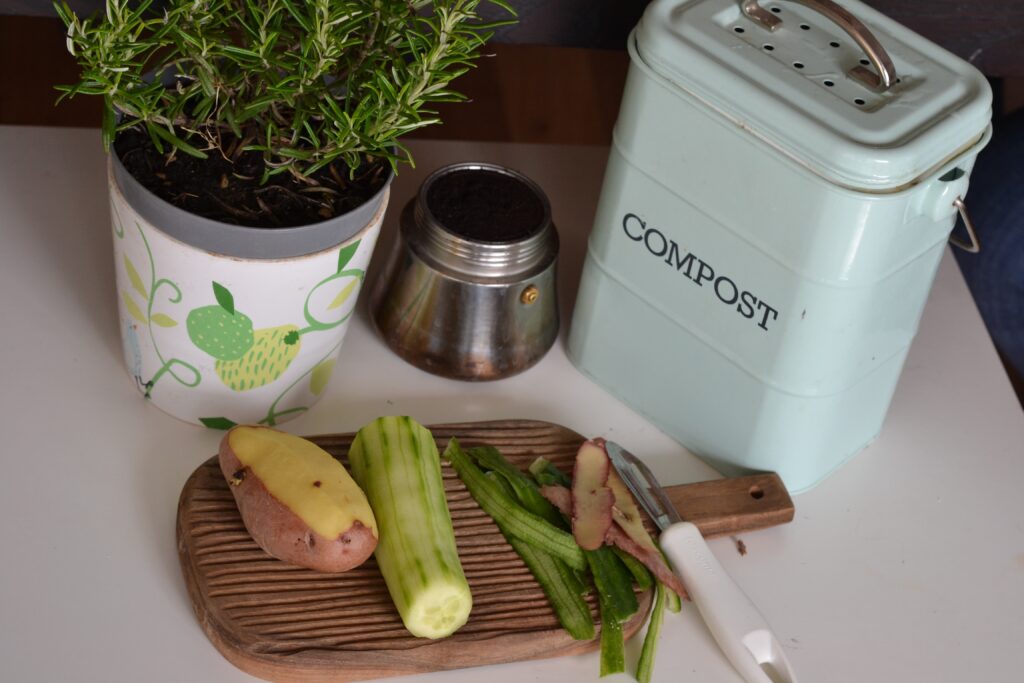
Humans have been digging holes to dump their trash for thousands of years. While the process became slightly more sophisticated in the 1970s, society hasn’t really transitioned to new ways to deal with trash.
Tennessee is now running out of landfills, and communities are confronted with a choice: build more, or repurpose their trash.
Local experts told WPLN’s daily show This is Nashville on Tuesday that the answer is easily the latter.
“The better solution is to figure out how we can divert, anything and everything, that is recyclable and reusable from that landfill waste stream,” said Scott Banbury, the lobbyist for the Sierra Club in Tennessee.
More: What is the future of Middle Tennessee’s trash?
This situation is coming to a head in Middle Tennessee. The Middle Point Landfill in Murfreesboro accepts waste from a third of Tennessee counties, including from Nashville, and officials have estimated that the dumping ground has as little as three years left — or maybe until the end of the decade.
Owners of the Middle Point Landfill want to expand the roughly 200-acre landfill by another 100 acres. The city of Murfreesboro rejected this plan last year, filed a lawsuit against the owners and then entered into a contract with a company that wants to burn the trash, turning it into coal and gas products.
‘It really gets in the way of people’s day-to-day lives’
City residents have long complained about the potential harms from Middle Point, since landfills can pollute local air and water while emitting strong odors.
Jeremy Aber, a geography professor at Middle Tennessee State University, lives about a mile from Middle Point.
“The first time I smelled it, I thought I had a serious gas leak,” Aber said. “Someone said, ‘No, no, no, that’s just the landfill.’”
The smell is fairly consistent for people living near the dumping ground, but even folks further across town can be disrupted by the smell if wind is coming from the north — sometimes with an odor powerful enough to cancel people’s outdoor plans.
“It really gets in the way of people’s day-to-day lives,” Aber said, while adding that it’s the gases that people can’t smell that cause many of the health risks.
In Murfreesboro, contaminated groundwater is a serious concern because of the area’s karst geology. The underground landscape is made up of cracked limestone that allows pollution to easily move through it to groundwater and rivers, and Aber warned that the landfill’s liner could have become degraded over the years.
Climate change is another issue. Landfills are the third largest source of methane, a greenhouse gas that is 80 times more potent than carbon dioxide in the near-term. Many of the methane-causing materials in a landfill are ones like food scraps and yard waste that can be composted.
Nashville is considering curbside composting
Nashville is working on a plan to become zero waste, or at least significantly reduce its reliance on landfills, says Jenn Harrman, the zero waste program manager at Metro Water Services.
Part of the solution could soon be curbside composting.
“We’re excited to be embarking on a new pilot program,” said Harrman, who added that the city currently offers composting at four drop-off sites.
Recycling will also have to be expanded — and corrected at the top of the supply chain since many products are not recyclable.
A recent Greenpeace report found that only 5% to 6% of U.S. plastic is recycled. One way to address that is through “extended producer responsibility,” or EPR, legislation, which tasks the manufacturers of packaging to tackle the waste problems created by their products.
 Courtesy Ritamarie Gammage/Facebook
Courtesy Ritamarie Gammage/Facebook The Duck River is the most biodiverse river in Tennessee.
“Unless we figure out some way of diverting a large amount of this material, we’re going to have to have a new landfill,” said Banbury of the Sierra Club.
That is a very real possibility. A Louisiana-based company, Trinity Business Group, has proposed a 1,300-acre trash complex, including a 300-plus-acre landfill, in Maury County that would sit “basically on the banks of the Duck River,” Banbury said.
The Tennessee General Assembly just passed legislation this week that would designate a segment of the Duck River as a Class II scenic river, which critics of the proposed trash site hope will help ward off its construction.


